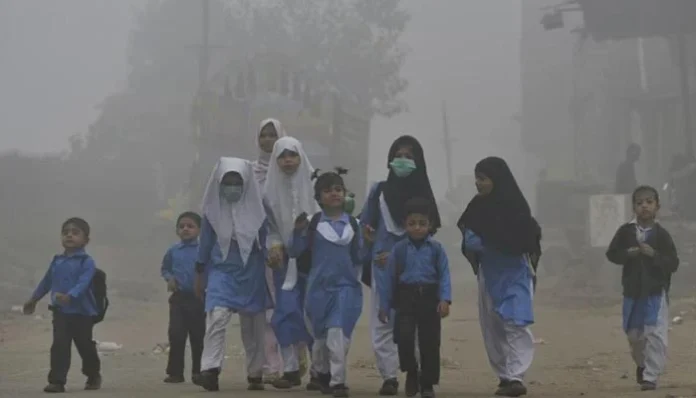Lahore, the capital of Punjab, has found itself at the top of the global pollution rankings, prompting the implementation of stringent measures to address the escalating environmental crisis. In response to the severe smog that has enveloped the region, the Lahore High Court (LHC) has issued a directive to close all educational institutions on Saturdays until the conclusion of January.
The decision, overseen by Justice Shahid Karim, involves instructing the administration to promptly issue official notifications for the closure of schools on Saturdays. Concurrently, the government is contemplating the adoption of a two-day work-from-home policy as a strategic response to mitigate the impact of the heightened pollution levels.
Recognizing the urgency of the situation, the LHC has not only mandated the closure of schools but has also directed the provincial environment department to take decisive action against officials who fail to effectively address the pervasive smog crisis. This underscores the gravity of the environmental challenge and places accountability on authorities to implement measures to counteract its effects.
As part of immediate pollution control efforts, the LHC has additionally imposed a one-week mandatory mask-wearing requirement across the province. This swift and decisive action aims to protect public health by reducing exposure to hazardous air pollutants.
These multifaceted measures are reflective of a comprehensive approach adopted by the local authorities in Lahore to combat the unprecedented levels of pollution. It underscores a commitment to both public health and environmental sustainability, acknowledging the interconnected nature of the challenges posed by the surge in pollution levels in the city. The situation in Lahore highlights the broader global issue of urban pollution and the need for proactive measures to address its adverse impacts on health and the environment.


